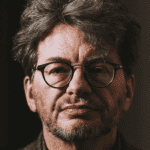Churches Must Be on Guard Against Creeping Tolerance of Euthanasia
Good people hate to see other people suffer physically. We serve those struggling with illness and debility by lessening their pain and honoring their wishes. But without certain worldview safeguards, these concerns can lead to the outright murder of thousands of people—murder in the name of medical assistance.
It is happening today in Canada and may happen in America as well. I am writing about euthanasia, which has claimed the lives of 30,000 Canadians since its legalization in 2016. Pastors must be ahead of the curve in warning their flocks against this evil and teaching a biblical worldview on the value of each human life in every situation.
Euthanasia and doctor-assisted suicide
Twelve of the United States have legalized doctor-assisted suicide, which differs from euthanasia, although they produce the same result. Colorado, for example, allows a physician to prescribe a lethal dose of poison for someone if they meet certain legal conditions. However, patients must take the poison themselves. With euthanasia, a physician administers the poison. But there is an emotional and consequential difference between the two practices.
California’s End-of-Life Options Act legalized doctor-assisted suicide on June 9, 2016. Through December 31, 2021, 2,422 people committed doctor-assisted suicide in California.1 Now compare that to over 30,000 Canadians who have chosen euthanasia since 2016. California has roughly 38 million residents. Canada has approximately 39 million residents. These numbers reveal the popularity of euthanasia over doctor-assisted suicide. There is still a social stigma against suicide. But death by euthanasia may seem more humane because it is administered by a physician, whom people often view as a helping and highly skilled professional. The Canadian program has the euphemistic title, Medical Assistance in Dying or MAID.
Currently, the United States does not allow euthanasia based on the Canadian model. But given the secularization of society and the abandonment of the sanctity of life, MAID could soon be knocking on our doors.
A biblical view of human life
The early church in the Roman Empire was known for caring for the outcasts and the helpless, even as it was persecuted by Rome until Emperor Constantine. The church cared for lepers and rescued and raised babies left to die by exposure. As Jesus taught, as we treat “the least of these,” so we treat Jesus (Matthew 25:31-46). These actions hinge on the truth that God loves all people (John 3:16) and that everyone is made in the image and likeness of God (Genesis 1:26-27). As such, the Creator of Life prohibited murder (Exodus 20:13).
Given the rise of secularism in law and culture, this foundation for the sanctity of human life has eroded in North America in recent decades. We have thus moved from a sanctity-of-life ethic (based on the Bible) to a quality-of-life ethic (based on a godless, secular worldview).
President Ronald Reagan identified the problem in the early 1980s:
“Every legislator, every doctor, and every citizen needs to recognize that the real issue is whether to affirm and protect the sanctity of all human life, or to embrace a social ethic where some human lives are valued and others are not. As a nation, we must choose between the sanctity of life ethic and the “quality of life” ethic.”2
Instead of taking each person to possess intrinsic value and rights, the quality-of-life view esteems people based on their social utility and inner sense of worth. Thus, if someone wants to die and is legally sanctioned for euthanasia, they may be put to death without guilt or wrong, according to this worldview. But in the biblical view, all human beings bear the divine image and must never be murdered. While we should offer compassion to those suffering in body and mind, the solution to suffering is never murder. And suicide is morally wrong. Doctor-assisted suicide and euthanasia combine homicide with suicide since a doctor causes the end of another human being’s life—either by prescribing poison or administering it.
The legality of doctor-assisted suicide or euthanasia is irrelevant to its immorality. As the Psalmist wrote, “Shall the throne of iniquity, which devises evil by law, Have fellowship with You?” (Psalm 94:20, NKJV). Some laws are simply evil, and the church should oppose and resist the implementation of evil laws. This is because we should seek the welfare of the city where God has placed us as salt and light (Jeremiah 29:7; Matthew 5:16-18). Further, the law of Moses declares: “Do not follow the crowd in doing wrong. When you give testimony in a lawsuit, do not pervert justice by siding with the crowd” (Exodus 23:2). When we face what Francis Schaeffer called “sociological law”—law unanchored in moral reality and subject to relative social judgments—we must oppose it and chart a better way.3
Beyond legal matters, pastors should encourage their flocks not only to oppose anti-life laws and attitudes about abortion, doctor-assisted suicide, and euthanasia but to be thoroughly pro-life. The church should be a culture of radical caring for those society forgets or wants to eliminate.
In Canada, the culture has encouraged even people with non-terminal illnesses to be euthanized. Journalist Alexander Raikin notes:
“A number of recent news articles have reported on Canadians who, driven by poverty and a lack of access to adequate health care, housing, and social services, have turned to the country’s euthanasia system. In multiple cases, veterans requesting help from Veterans Affairs Canada — at least one asked for PTSD treatment, another for a ramp for her wheelchair — were asked by caseworkers if they would like to apply for euthanasia.”4
How many of these disadvantaged people would have even considered euthanasia if the church offered them loving care and stood in the gap for them? Whatever the law, if the people of God offer “the least of these” compassion and care, they would experience meaning and value in life not otherwise available to them. To that end, pastors can ensure their churches have strong compassion ministries, including hospital and home visitation, financial aid for those in distress, and more. They can also exhort their congregations to outdo each other in showing honor and love to the least, the last, and the lost. As Paul exhorted us, “Be devoted to one another in love. Honor one another above yourselves” (Romans 12:10).
Although Canada is now more secular than the U.S. and lacks our Christian heritage in civil government, Americans are also losing their moorings legally and culturally and could move toward euthanasia. May God’s pastors and churches be strong voices against this inhumane outcome that turns physicians into murderers.
©2023 Douglas Groothuis. All rights reserved. Used with permission.
- California End of Life Options Act Data Report 2021 (July 2022), https://www.cdph.ca.gov/Programs/CHSI/CDPH%20Document%20Library/CDPH_End_of_Life%20_Option_Act_Report_2021_FINAL.pdf ↩︎
- President Ronald Reagan, Abortion & the Conscience of the Nation (p. 48). New Regency Publishing. Kindle Edition. ↩︎
- See Francis Schaeffer, “Our Society,” How Should We Then Live? The Rise and Fall of Western Culture (New York: Fleming H. Revel, 1976). ↩︎
- Alexander Raikin, “No Other Options,” The New Atlantis (Winter, 2023), https://www.thenewatlantis.com/publications/no-other-options. ↩︎
About The Author

Douglas Groothuis
Douglas Groothuis, Ph.D., is Professor of Philosophy at Denver Seminary where he heads the Apologetics and Ethics Masters Degree program. He is the author of 16 books, including Fire in the Streets.








